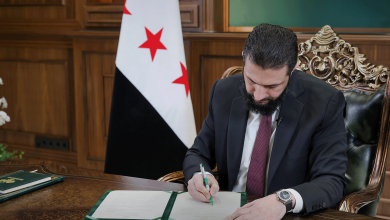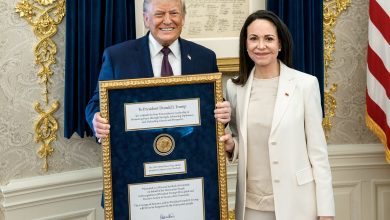Algiers – The National Cinema Sessions concluded on Monday, January 20, 2025, in Algiers with a set of recommendations aimed at revitalizing Algeria’s cinema industry and positioning it as a key cultural and economic driver. Participants called for the establishment of a sustainable financing system, enhancement of the regulatory framework, digitization of archives, modernization of infrastructure, and capacity-building through training programs.
These recommendations emerged from five workshops held as part of the sessions, organized under the high patronage of the President of the Republic, Mr. Abdelmadjid Tebboune. The workshops, which brought together filmmakers, producers, investors, and experts, focused on five key themes: “Economy and Financing of Cinema,” “Governance and Regulatory Framework,” “Ethics, Professional Relations, and Training,” “Audience Engagement and Film Distribution,” and “Digitization, Technology, and Preservation of Cinematic Heritage.”
Workshop 1: Economy and Financing of Cinema
Participants emphasized the need to strengthen public financing mechanisms by increasing the budget of the National Fund for the Development of Cinematic Industry and Techniques (FNDTIC). They proposed activating local and regional funds to support film production, as well as mandating public and private television channels to participate in pre-purchase agreements or co-productions of Algerian films.
Additional recommendations included:
- Introducing a 10-year tax exemption policy for companies investing in film projects.
- Reducing or eliminating taxes on the import of technical equipment for filming and post-production.
- Establishing dedicated studios for filming and post-production to support local and international productions.
Workshop 2: Digitization, Technology, and Preservation of Cinematic Heritage
This workshop called for the creation of a roadmap to digitize Algeria’s cinematic archives. Recommendations included cataloging and documenting the national film archive, prioritizing based on the importance and condition of the material. Participants also emphasized collaboration with national and international institutions to recover and document Algeria’s cinematic heritage.
They further suggested:
- Strengthening the resources (human, technical, and financial) of institutions tasked with preserving cinematic archives.
- Establishing a laboratory within the Algerian Cinema Center (Cinematheque) for archiving and digitization.
Workshop 3: Audience Engagement and Film Distribution
To increase public engagement with Algerian cinema, participants proposed eliminating cultural visas for films screened by cinema clubs affiliated with the ministry. They also called for simplifying legal procedures for establishing film clubs and providing logistical and financial support to these clubs.
Other recommendations included:
- Allocating cultural centers and cinemas under the ministry’s authority for the use of film clubs.
- Continuing efforts to recover and renovate cinemas across the country.
Workshop 4: Governance and Regulatory Framework
Participants recommended the creation of a Cinema Center under the Ministry of Culture and Arts to manage and oversee the sector. They also suggested the establishment of a “Higher Council for Cinema” as an advisory body to guide the development of the cinematic industry.
Key points included:
- Updating Algeria’s regulatory framework for the cinematic industry.
- Strengthening international co-production agreements.
- Developing a legal roadmap to support the annual production of Algerian films, with a proposed quota to be funded by the ministry.
Workshop 5: Ethics, Professional Relations, and Training
This workshop emphasized the need for a unified professional contract template to define the rights and obligations of industry professionals. It also recommended the establishment of a union or representative body for cinema professionals to facilitate collective agreements.
Additional proposals included:
- Creating a mediation body within the ministry to resolve disputes among cinema professionals without resorting to the judiciary.
- Prioritizing Algerian talent in publicly funded film productions.
- Expanding training programs to develop local expertise in filmmaking and related fields.
Official Statements
Closing the sessions, Minister of Culture and Arts, Mr. Zouheir Ballou, highlighted the transformative vision laid out by President Abdelmadjid Tebboune during the sessions’ opening ceremony. The President’s remarks, he noted, signified a “new era for Algerian cinema,” recognizing its potential as a cultural and economic engine within Algeria’s broader developmental strategy.
The Minister stated that the contributions made during the sessions would serve as the foundation for an ambitious strategic roadmap. “Guided by the President’s vision, the ministry is committed to continuing this inclusive and participatory approach, ensuring that filmmakers remain central to the developmental process,” he said.
The recommendations, he added, would be prioritized and implemented in alignment with a jointly agreed timeline, reflecting Algeria’s aspiration to build a modern and competitive cinematic industry.
A New Vision for Algerian Cinema
President Abdelmadjid Tebboune’s opening remarks emphasized the importance of the audiovisual sector in meeting the ambitions of Algerian creators and cultural professionals. He underscored the need to rekindle the brilliance of Algeria’s cinematic legacy, drawing inspiration from the groundbreaking achievements of the 1970s.
The sessions are part of a broader, coordinated vision aimed at establishing a competitive and modern film industry. They are designed to address the challenges of the contemporary cinematic sector while aligning with Algeria’s national aspirations and cultural identity.
For further details, visit DZWATCH.DZ.
Author: Nor-Eleslam




